Amid the surging tide of the digital era, AI technology emerges as a dawn illuminating a new journey in the financial domain. Traditional financial models exhibit fatigue in the complex and volatile business environment, while the rise of AI injects robust impetus into financial transformation. From intricate data input to precise intelligent analysis, and from isolated financial accounting to comprehensive digital intelligence empowerment, AI is redefining the ecosystem and value of finance.
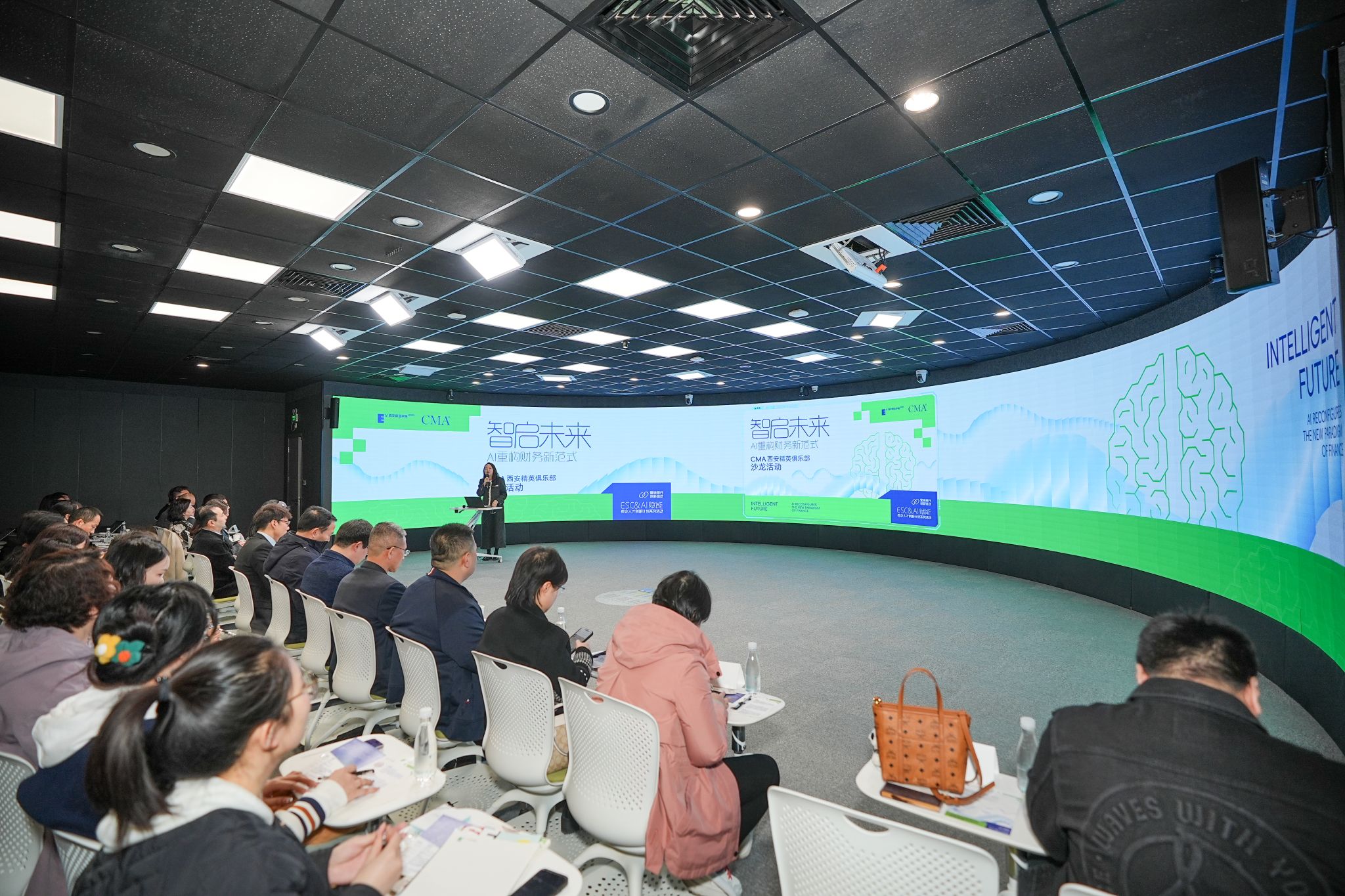
(Photo 1) "Embracing Smart Future—AI Reshaping New Paradigms in Finance" Salon Event
On the morning of March 29, the salon "Embracing Smart Future—AI Reshaping New Paradigms in Finance," co-hosted by the CMA Xi'an Elite Club and Xi'an Eurasia University, was held at the North A Panoramic Classroom. Industry pioneers, academic scholars, and 30 CMA elite club members from the intelligent finance field convened at Xi'an Eurasia University to explore the forefront trend of deepening AI-finance integration. Engaging in profound discussions and hands-on experience exchanges, they unveiled AI's potential in enabling financial transformation, explored innovative approaches to cultivating financial talent in the AI era, and identified the expansive possibilities of leveraging AI to promote value creation in digital intelligence finance.
Professor Hu Jianbo, Chairman of Xi'an Eurasia University; Professor Tian Gaoliang, Deputy Dean of the School of Management of Xi'an Jiaotong University and member of the IMA Academic Advisory Committee; Wang Hao, General Manager of Shaanxi Cultural Finance Investment Holding (Group) Co., Ltd.; He Lianfeng, Director of CMA Center of Xijing University; Ma Dengfeng, Senior Manager of Strategic Planning Department of Shaanxi Financial Asset Management Co., Ltd.; Shi Tong, Doctoral Candidate of School of Economics and Management, Xi'an University of Technology; Zhao Jiangbo, General Manager of Shaanxi Zhonghong Finance and Taxation Research Institute; Zhang Haiming, CFO of CCIC West Testing Company Limited; Han Lei, Executive Dean of School of Accounting, Xingzhi College of Xi'an University of Finance and Economics; Yue Peng, Business Director of Shenwan Hongyuan Western Securities Shaanxi Branch; Liu Shuwei, Chairman of Shanghai Jingzhaocheng Enterprise Development Co., Ltd.; Wang Juan, Senior Account Manager of Kaiyuan Securities Wealth Center; Feng Dongze, Deputy General Manager of Financial Asset Management Department of China Nuclear Huachen Construction Engineering Co., Ltd.; Yu Meng, Executive Dean of ZTE Xinyun Financial Cloud Academy; Li Zheng, Vice President, Hu Weiyue, Board Secretary, and Xie Tao, Executive Dean of School of Accounting and Finance of Xi'an Eurasia University, as well as 30 CMA Elite Club members attended. Zhang Wei, Assistant to the Dean of School of Accounting and Finance of Xi'an Eurasia University presided over the salon.
IMA International Management Accounting Talent Training Base established at Xi'an Eurasia University
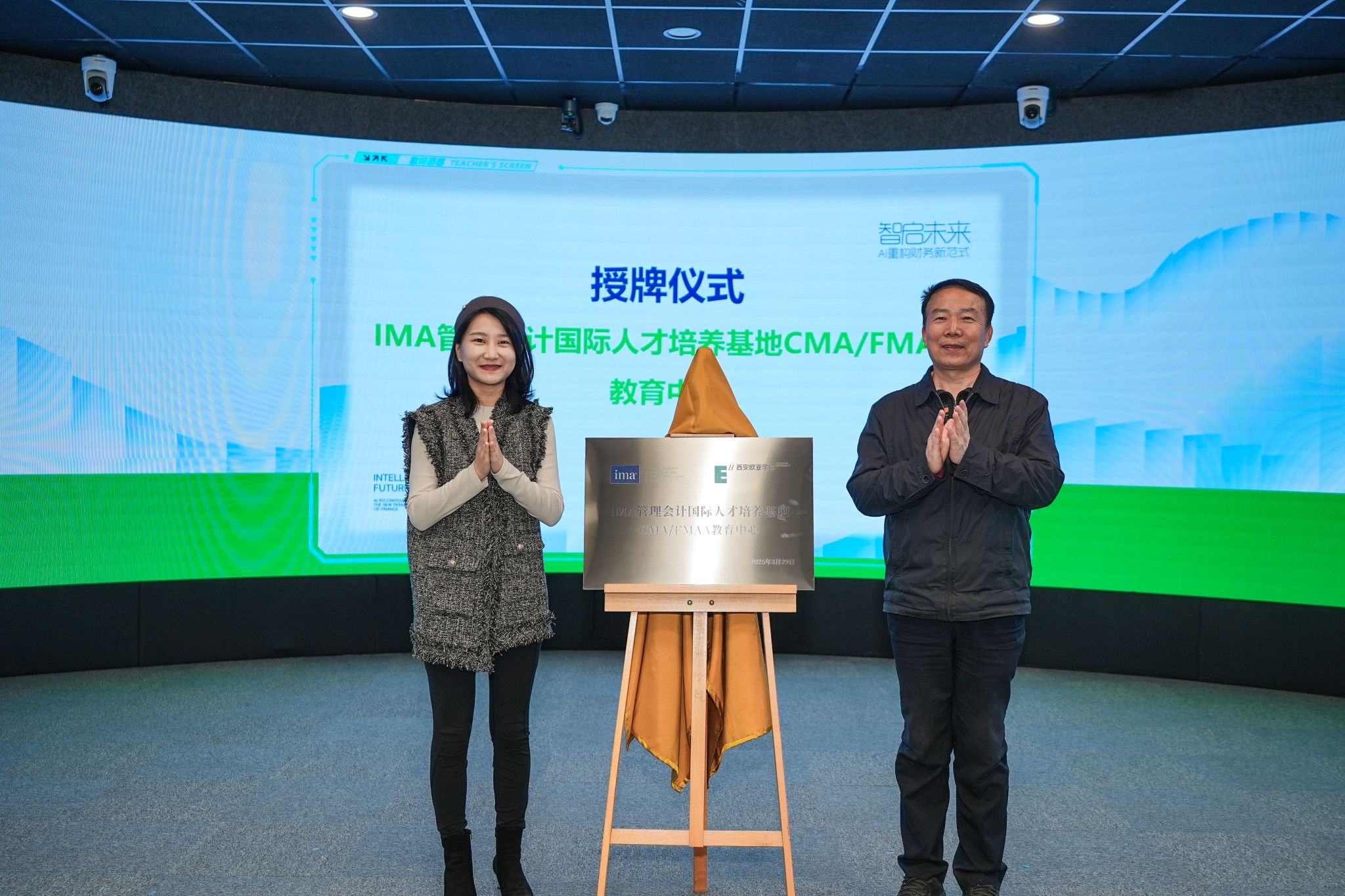
(Photo 2) Tian Gaoliang and Hu Weiyue Jointly Unveiled the Nameplate of the "CMA/FMAA Education Center of IMA Management Accounting International Talent Training Base" at Xi'an Eurasia University.
During the event, the Institute of Management Accountants (IMA) awarded Xi'an Eurasia University the designation of "CMA/FMAA Education Center of IMA Management Accounting International Talent Training Base," with the nameplate jointly unveiled by Tian Gaoliang and Hu Weiyue. This signifies IMA's recognition of the university's contributions to management accounting education and marks an innovative approach by Xi'an Eurasia University in training international talent for management accounting.
The CMA/FMAA Education Center of IMA Management Accounting International Talent Training Base, authorized by IMA, serves as a professional educational platform that fosters international management accounting specialists. Its primary functions encompass providing training in certifications like CMA and FMAA, promoting industry transformation, creating professional networking opportunities, and enhancing participants' strategic decision-making capabilities by integrating international standards with local practices. Its primary functions encompass systematic teaching (online & offline courses and practical simulations), comprehensive support (e.g., exam registration), career development services (e.g., recruitment partnerships and vocational guidance), ongoing education (CPE credit-accredited courses), and the integration of industry research resources. Notably, the platform emphasizes technology empowerment (e.g., AI learning tools), customized training for collaboration between institutions and enterprises, and endorsements of international certifications, delivering a bridge between cutting-edge knowledge and practical application for students and businesses.
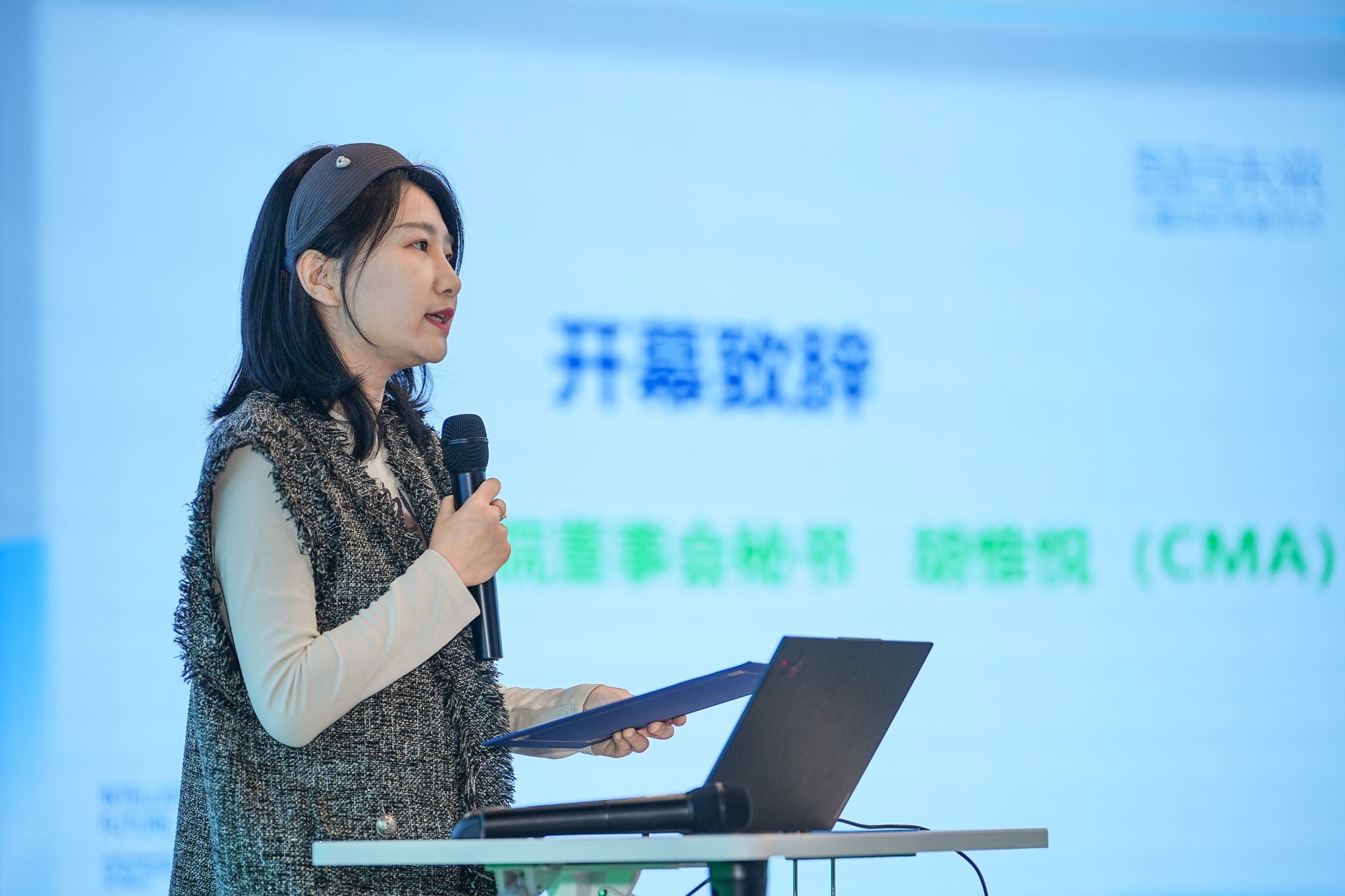
(Photo 3) Hu Weiyue, Secretary of the Board of Directors of Xi'an Eurasia University, Delivered an Opening Speech
During her speech, Hu Weiyue mentioned that establishing the IMA Management Accounting International Talent Training Base at Xi'an Eurasia University can cultivate a more international academic atmosphere for both faculty and students and facilitate the integration of international cutting-edge management accounting concepts and practices with those implemented at the university. Taking Xi'an Eurasia University as an example, she shared her insights into AI's influence on finance and accounting education and on financial management of universities. The university's business and accounting education aligns with market demands. It emphasizes the reconstruction of financial paradigms through AI technologies, thereby enhancing the curriculum system and reinforcing practice-oriented teaching methods. Leveraging AI technologies, the university employs digital teaching tools to offer personalized knowledge-sharing approaches and has fostered an innovative and practical learning environment for its students. Furthermore, through collaborative engagements with key employers via internships and industry-university integration research projects, the university enhances students' problem-solving skills. It nurtures professionals who can adapt swiftly to employers' requirements. Additionally, by making good use of digital technologies such as AI combined with the thinking tools and methodologies of management accounting, the university has enhanced its financial processes, achieved automated and comprehensive analysis of financial data, and furnished robust data support for strategic decision-making. In the future, Xi'an Eurasia University anticipates utilizing the CMA Xi'an Elite Club's exchange platform to access a wider range of international resources, foster deeper collaborations with additional enterprises, promote academic research and the sharing of practical experiences in finance and accounting, and collectively advance innovative developments in management accounting throughout Shaanxi and the broader western China region.
Xie Tao, Executive Dean of School of Accounting and Finance, was appointed as the Academic Consultant of CMA Xi'an Elite Club
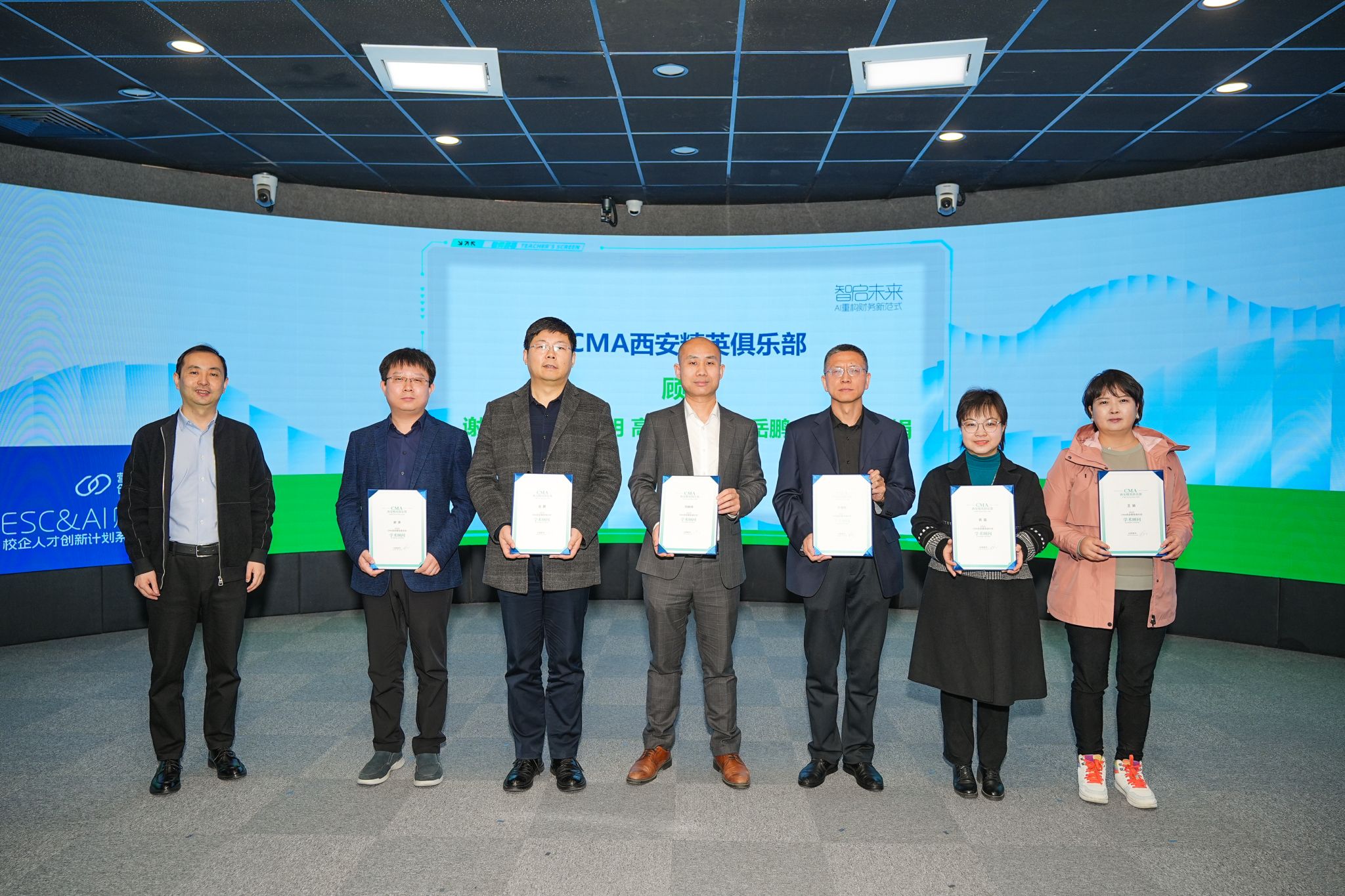
(Photo 4) Xie Tao (second from left), Executive Dean of School of Accounting and Finance, was Appointed as the Academic Consultant of CMA Xi'an Elite Club
At the subsequent CMA Xi'an Elite Club Advisory Team Appointment Ceremony, Xie Tao was appointed as the academic consultant of CMA Xi'an Elite Club.
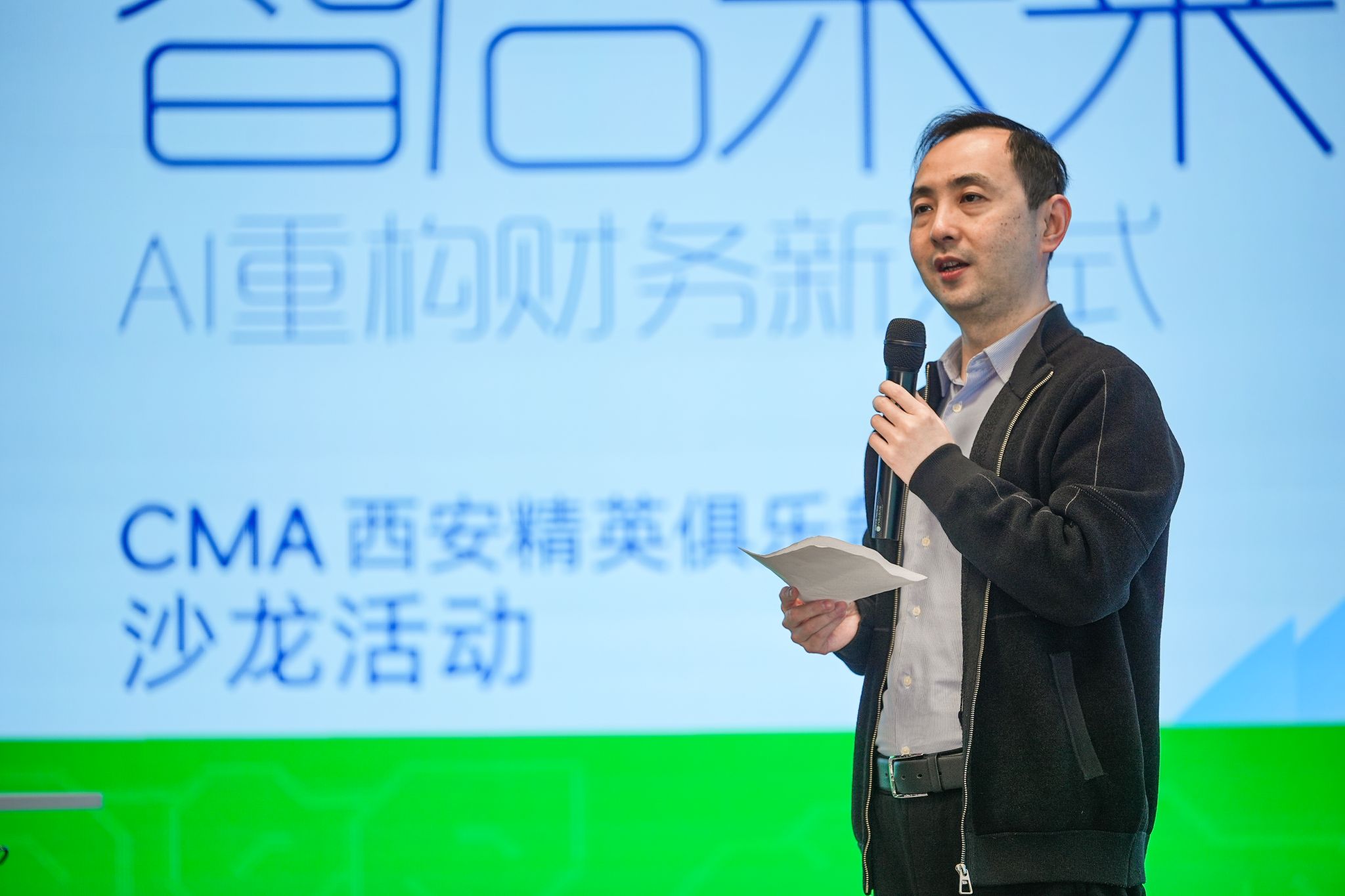
(Photo 5) Speech by Wang Hao, Chairman of the Council of CMA Xi'an Elite Club
Wang Hao, Chairman of the Council of CMA Xi'an Elite Club, said that the club aims to provide a platform for CMA licensees to communicate and link with each other. In the future, the club will continuously promote innovation in management accounting practice through academic exchanges and industrial cooperation.
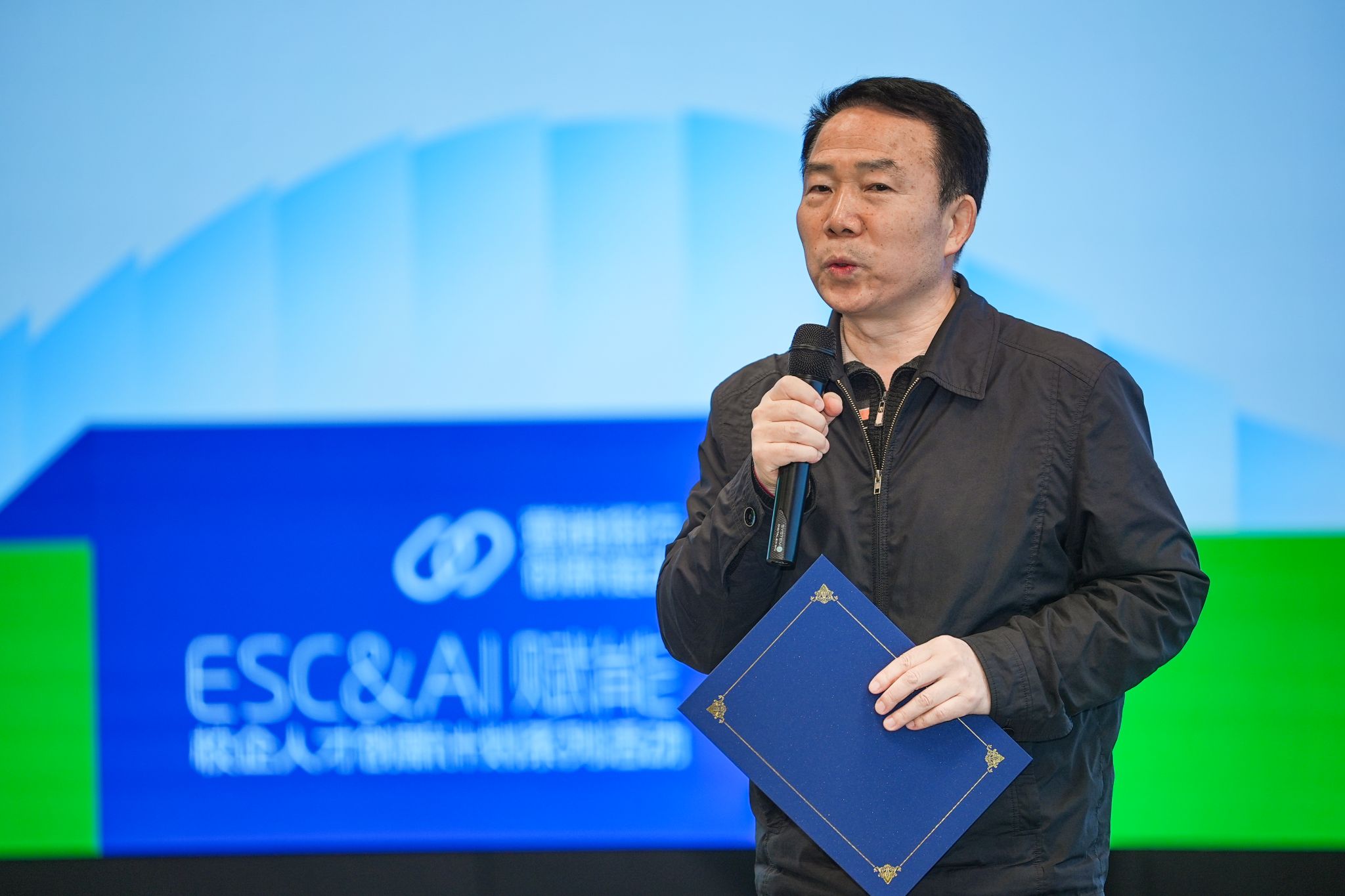
(Photo 6) Professor Tian Gaoliang, General Academic Advisor of CMA Xi'an Elite Club
Professor Tian Gaoliang, General Academic Counsel of CMA Xi'an Elite Club, pointed out that AI promotes the transformation of finance from basic accounting to value creation. Financial education needs to accelerate AI integration, and universities need to cultivate innovative, versatile, and intelligent financial talent.
A Collision of Views Between University Scholars and Industry Experts to Explore a New Paradigm for AI-Based Financial Reconstruction
// Theme Sharing: AI + Empowering Financial Value Innovation of Digital Intelligence
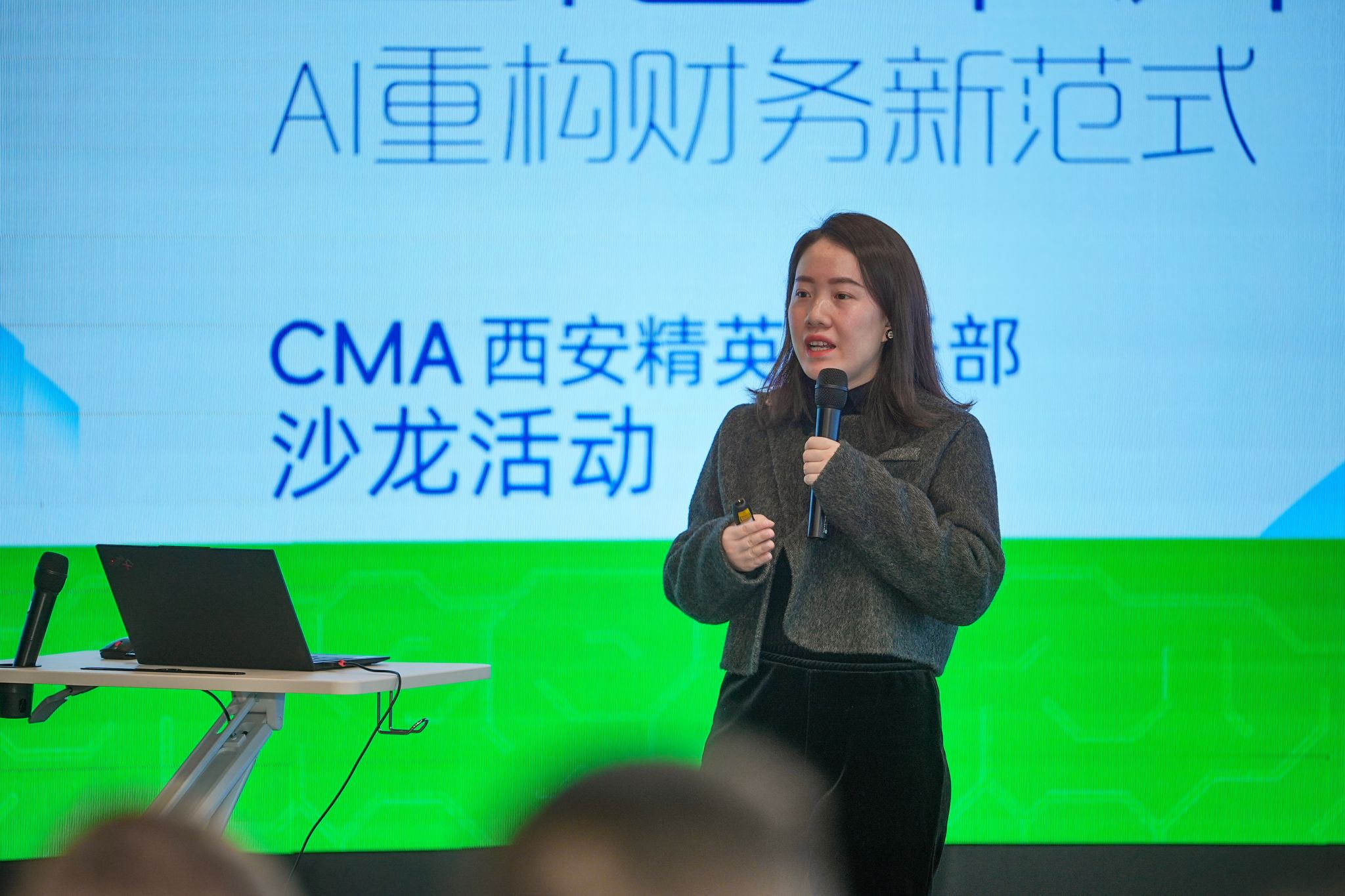
(Photo 7) Theme sharing by Yu Meng, Executive Dean of ZTE New Cloud Finance and Cloud College
Yu Meng shared ZTE New Cloud's practical achievements in utilizing AI to empower financial sharing practices. She proposed that enterprises could drive digital transformation of financial operations through the "IT+DT+AI" engines: IT solidifies governance and processes for streamlined operations; DT establishes a comprehensive data value chain; AI leverages reconstructing traditional workflows, boosting decision-making efficiency and extending management boundaries.
Yu Meng also presented AI application cases in intelligent reimbursement, risk forecasting, and data analysis: The intelligent reimbursement system minimizes manual tasks through natural language interaction, enabling automatic document completion, rule verification, and risk interception; the data value chain, spanning from collection and cleaning to algorithmic modeling, develops enterprise data assets to underpin strategic corporate decisions.
"Financial professionals transitioning from accounting to decision support need to master skills such as data governance and algorithm models, and deepen their understanding of business contexts." Yu Meng emphasized that cultivating future financial talent requires initiating paradigm shifts in foundational concepts, gaining insights into the entire financial industry's development to foster a transformation in individual consciousness. It also involves reconstructing the comprehensive knowledge system, understanding frameworks of shared services, business-finance integration, intelligent finance, and financial digitalization. Moreover, leveraging external technologies like IT, AI, and DT is essential to facilitate rapid learning, iterative innovation, and capability enhancement, including financial management analyses, problem exploration and resolution, data insight processing, as well as the demands and applications of digital informational tools.
// Theme Sharing: Financial Digital Transformation of Private Universities based on Reshaping Financial Functions
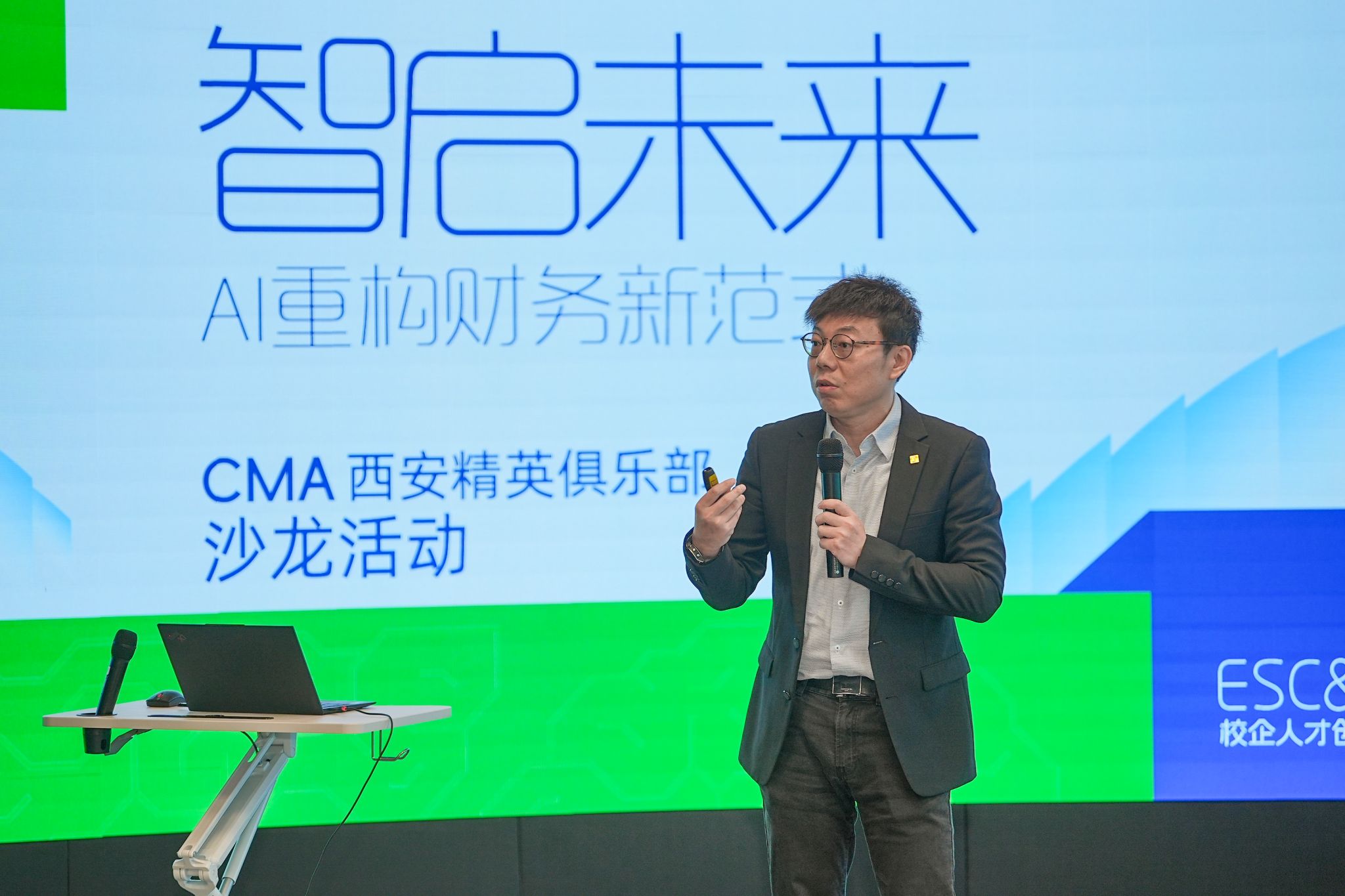
(Photo 8) Theme Sharing by Li Zheng, Vice President of Xi'an Eurasia University
Li Zheng shared insights from Xi'an Eurasia University's financial digital transformation experience, encompassing the construction of data governance systems, process automation, and integrating AI technologies in education. Using Xi'an Eurasia University as an example, he highlighted that the current focus of AI in finance is on integrating data silos in business systems rather than directly implementing AI as a replacement.
Li Zheng also examined the application status and challenges of AI in the finance sector: AI in informatization is categorized into the foundational, technological, and application layers. Presently, the financial sector is engaged in application layer exploration, necessitating continuous data training to enhance model practicality. However, current AI tools primarily offer functional assistance, with complex decisions requiring the collaboration of finance professionals and AI. Traditional financial processes can be static, conflicting with AI's demand for dynamic business scenarios, necessitating process reconstruction and the development of cross-domain issue identification capabilities. In addition, input of low-quality data could result in biased AI decisions, so priority should be given to digital transformation, followed by the advancement of deeper intelligence.
"AI-enabled finance requires simultaneously meeting the five conditions of data governance, technological platform integration, process reengineering, talent skill enhancement, and risk management. The role of financial functions needs to shift from transactional processing to strategic support, emphasizing data analysis, cross-department collaboration, and value extraction capabilities," stated Li Zheng.
// Roundtable Forum: AI + Finance: From Tools Revolution to Cognition Promotion
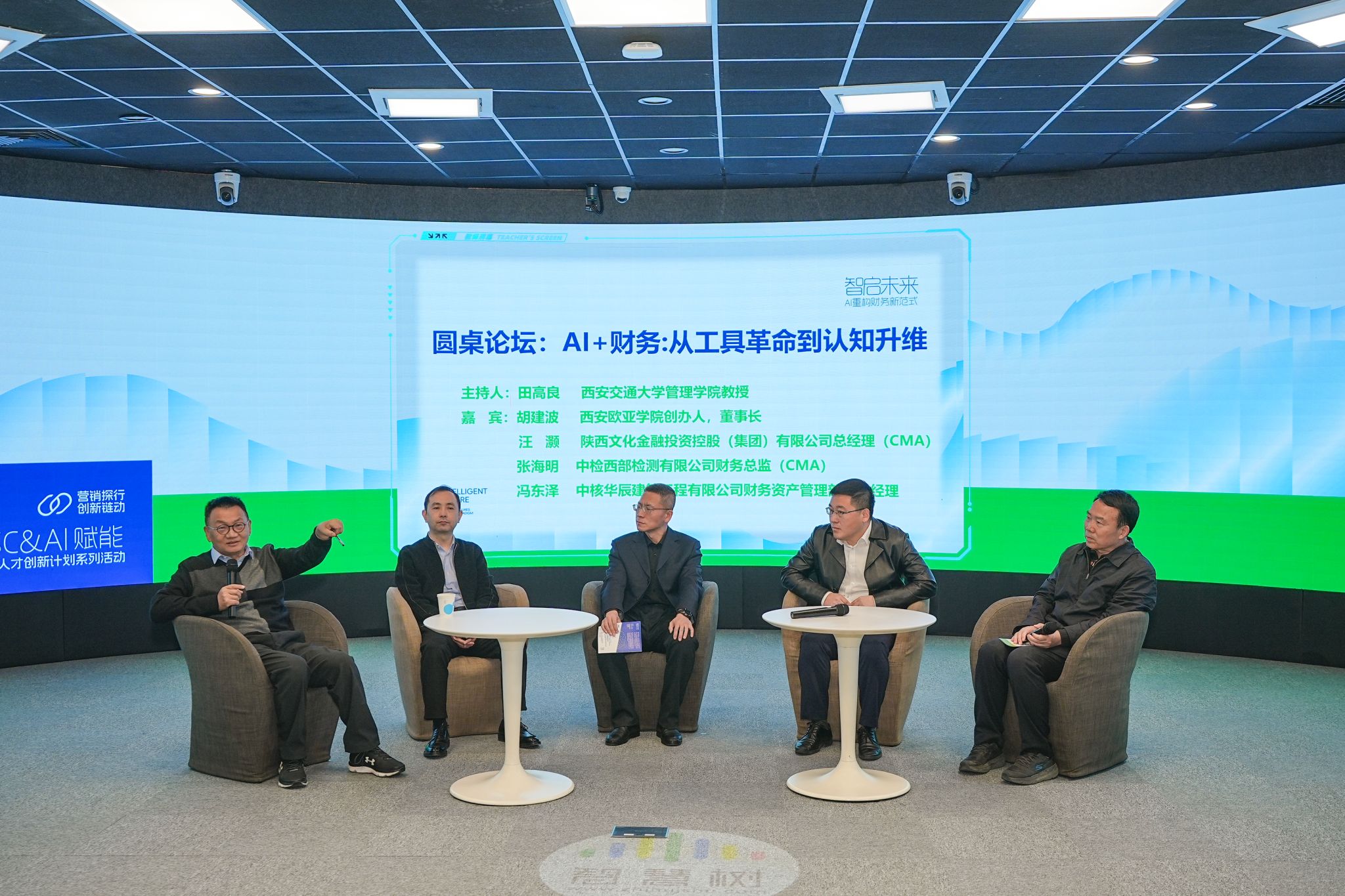
(Photo 9) Guests of the Roundtable Forum: Hu Jianbo, Wang Hao, Zhang Haiming, Feng Dongze, and Tian Gaoliang (from left to right)
The roundtable forum focused on the theme "AI + Finance: From Tools Revolution to Cognition Promotion." Tian Gaoliang, along with Hu Jianbo, Wang Hao, Zhang Haiming, and Feng Dongze, shared their insights on topics such as the challenges and opportunities of AI-financial integration, service design empowering financial innovation, financial transformations in central state-owned enterprises, applications of AI in investment decision-making, and cultivation of finance professionals. This multi-dimensional, in-depth discussion jointly explored the forefront trends of AI-enabled finance.
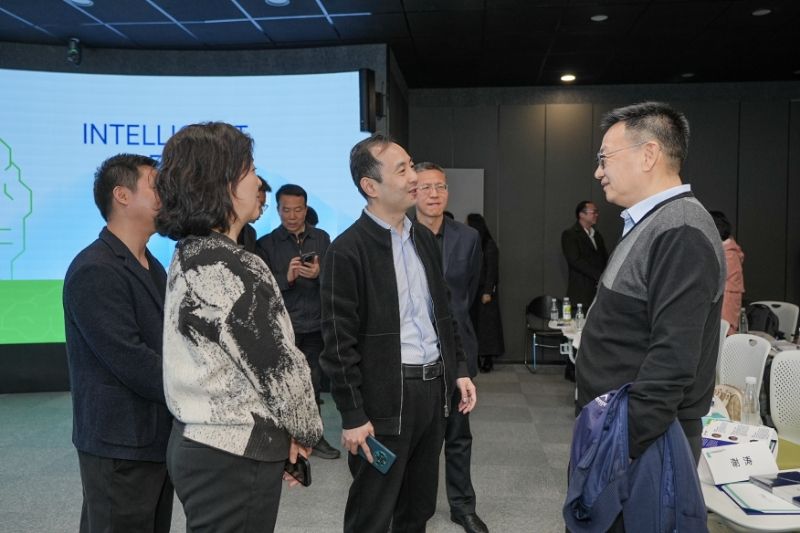
(Photo 10) Hu Jianbo Engaged in In-depth Discussions with the Participating Enterprises
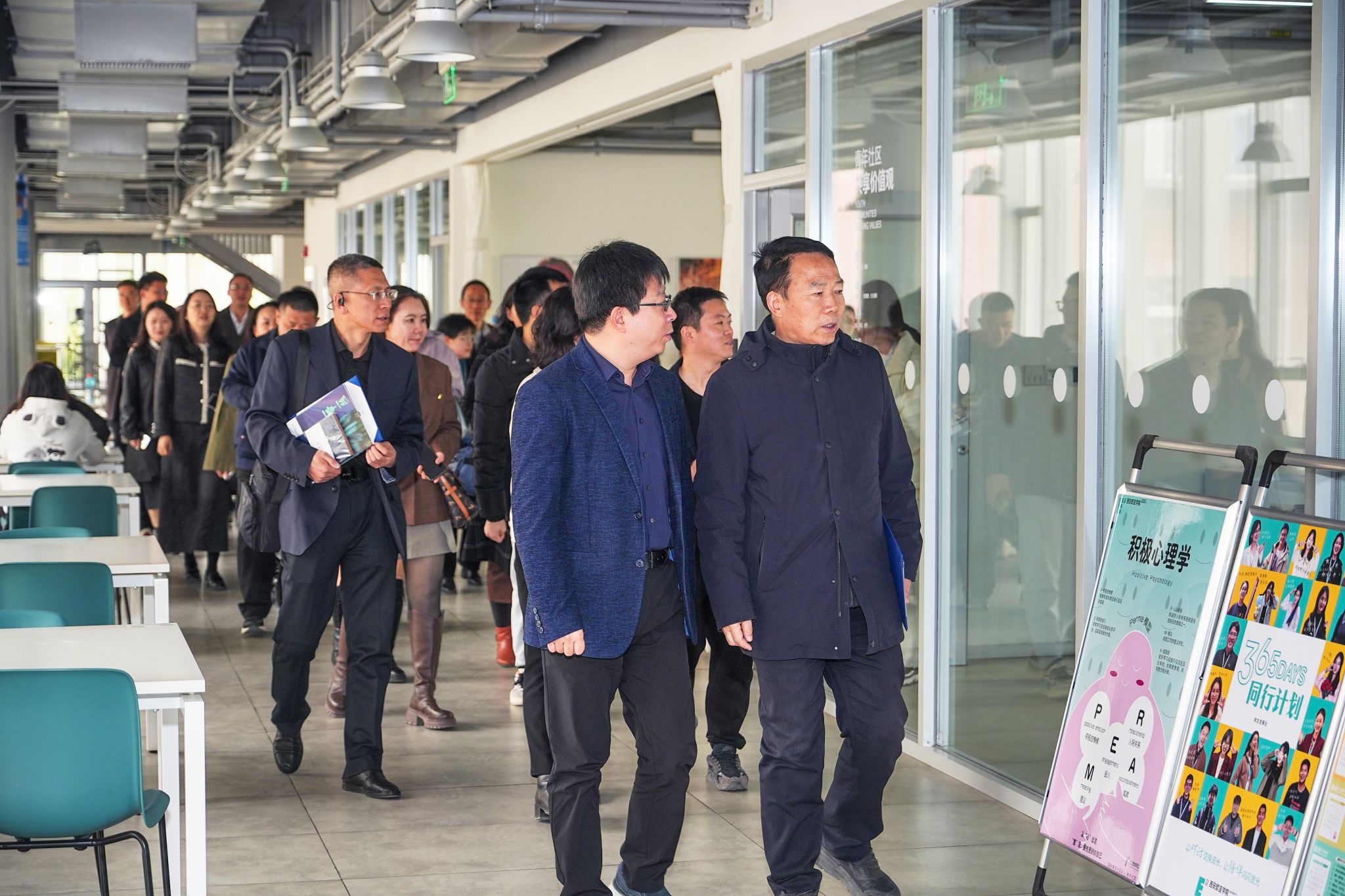
(Photo 11) Attending Guests Visited the Xi'an Eurasia University Campus
With breakthroughs in advanced large-scale model technologies like DeepSeek, a new era featuring the in-depth integration of "Finance + IT + DT + AI" has arrived. In response to the era's changes, the School of Accounting and Finance at Xi'an Eurasia University consistently adheres to the educational philosophy of "employer-oriented & student-centered." This ensures that teaching aligns with market demand, talent meets industry needs, and the professional system synergizes with technological advancements and industrial transformation.
In recent years, guided by the principle of "internationalization at home," the School of Accounting and Finance has advanced the development of international education. The school has been recognized as an "ACCA Gold Approved Learning Partner" for four consecutive years. Looking ahead, as a designated teaching center for IMA's international CMA talent, the School of Accounting and Finance will consistently provide comprehensive support for CMA members. It will foster long-term and stable collaboration with enterprises and pursue in-depth initiatives in talent development, curriculum design, internships, and employment, collectively nurturing innovative professionals aligned with the financial sector's dynamic evolution.
(Text by School of Accounting and Finance)





